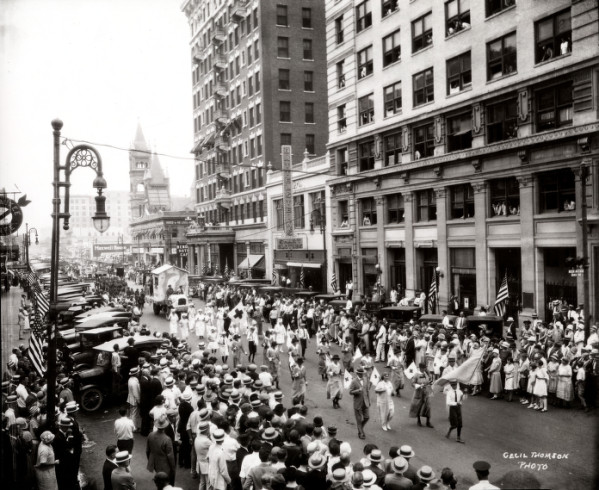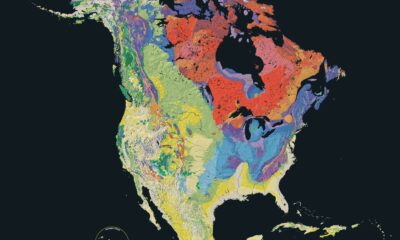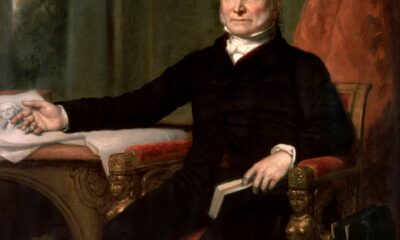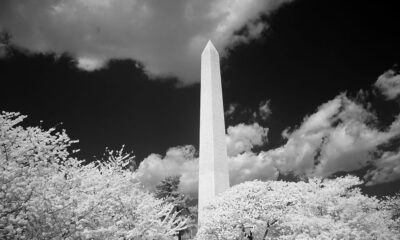Civilization
Was the U.S. Army Really the “Decisive” Force in World War I?

In his 2001 book The Myth of the Great War: A New Military History of World War I, the American Professor John Mosier, who teaches English at Loyola University in New Orleans, makes the claim that the American Expeditionary Forces [AEF] were fully responsible for the Allied victory in 1918. He begins by saying:
I had always assumed that our participation in the war was roughly equivalent to Canada’s, which is to say, honorable and significant, but not determining. Over the four years of the war, 624,964 Canadians enlisted, 422,405 were in the field, and there were 56,625 war dead—this last close to the battlefield deaths suffered by the AEF. Canada’s record in the Great War was one of distinction, but, given the fact that Great Britain alone put nearly five and a half million men into the field, it could hardly be said that Canada’s role was decisive. But America’s role in the war was absolutely decisive. The string of German battlefield successes stopped abruptly on the entry into the line of the newly formed American divisions, the course of the war changed drastically, and members of the Oberste Heeresleitung, the General Staff of the German Army (the OHL), recommended that Germany seek terms. When [President] Wilson hinted to the Allies that he would seek his own peace unless his famous Fourteen Points were adopted, they caved in. The Great War was won on the ground by American soldiers deployed as an American force… (pp. 6-7)
The disputed value of American forces, as opposed to allied forces
This is a narrative that many American militarists love to hear, but others have challenged this view over the years. For example, the Canadian historian Daniel Dancocks, in his 1987 book Spearhead to Victory: Canada and the Great War, presents a table of statistics comparing the achievements of the Canadian Corps and the AEF during the final hundred days of the war. The Americans had more than six times as many soldiers as the Canadian Corps, but the Canadians defeated more enemy divisions, advanced more than twice as many miles, suffered proportionately far fewer casualties, captured almost twice as many prisoners, more guns, and more trench mortars. The Americans captured 2864 machine-guns, whereas the Canadians only got 2842, and that is the only area in which the AEF outperformed the Canadian Corps. (p. 211) Dancocks maintains that
This comparison is made not to belittle the American army; but to shed light on the spectacular Canadian performance. Only the Australian Corps could offer numbers comparable to the Canadians. Engaging thirty-nine German divisions during the period 8 August – 5 October, the Australians had captured 29,144 prisoners and 338 guns, driving thirty-seven miles into enemy-held territory, at the cost of 21,245 casualties. (p. 212).
Note that the Australians, like the Canadians, also captured more prisoners than the AEF did in the Meuse-Argonne.
It goes almost without saying that the Germans had the greatest respect for the Canadian Corps. Dancocks reports that
A German officer who was later captured “declared that when his men knew that the Canadians were in front of them they would not fight, and he shot five of them pour encourager les autres.” (p. 95). Another captured German officer described Canadian soldiers as “magnificent” in battle. (p. 137)
However, as I am not a chauvinist, I would also like to offer the eminent British historian Sir John Keegan’s assessment that the New Zealanders were the best troops:
Out of a male population of half a million, New Zealand could provide 50,000 trained soldiers aged under twenty-five. Australia furnished proportionate numbers. Fewer of the Australians were countrymen than the New Zealanders, whose settler independence and skills with rifle and spade would win them a reputation as the best soldiers in the world during the twentieth century, but Australian dash and individualism, combined with an intense spirit of comradeship, were to create units of formidable offensive power, as the Germans would later acknowledge and the Turks were soon to discover. (p. 261)
Numbers do not alone help an army win
So, the New Zealanders had better soldiers, at least in Keegan’s well-informed view, and the much smaller Canadian Corps and Australian Corps did far better in combat than the AEF during the final months of the war. This just proves that quality does matter, and there’s more to winning a war than just having the biggest army. I am talking about rigorous selection and training standards, unit cohesion, discipline, courage, and loyalty, and contrary to what the militarists say, the United States did not have a monopoly in these important areas during World War I, or World War II for that matter.
The only reason I mention this is because many Americans have a regrettable tendency to undervalue the work of the Allies, like New Zealand, Australia, and Canada. This is in no small way related to the concept of American Exceptionalism, and the resulting false belief that the US is a “superhero” in war. Let’s hope that this tendency will eventually fall into decline and be replaced by a more enlightened and humble perspective on America’s actual military standing in the world.
Notes:
John Mosier. The Myth of the Great War: A New Military History of World War I. HarperCollins. Kindle Edition.
Daniel G. Dancocks. Spearhead to Victory: Canada and the Great War. Edmonton: Hurtig Publishers, 1987.
John Keegan. The First World War. Random House. Kindle Edition.
This article was originally published by RealClearDefense and made available via RealClearWire.
Roger Thompson is a research fellow at Dalhousie University’s Centre for the Study of Security and Development, the author of "Lessons Not Learned: The U.S. Navy’s Status Quo Culture," and a former researcher at Canada’s National Defence Headquarters.
-

 Civilization1 day ago
Civilization1 day agoWhy Europe Shouldn’t Be Upset at Trump’s Venezuelan Actions
-

 Accountability4 days ago
Accountability4 days agoWaste of the Day: Principal Bought Lobster with School Funds
-

 Executive2 days ago
Executive2 days agoHow Relaxed COVID-Era Rules Fueled Minnesota’s Biggest Scam
-

 Constitution3 days ago
Constitution3 days agoTrump, Canada, and the Constitutional Problem Beneath the Bridge
-

 Christianity Today1 day ago
Christianity Today1 day agoSurprising Revival: Gen Z Men & Highly Educated Lead Return to Religion
-

 Civilization2 days ago
Civilization2 days agoThe End of Purple States and Competitive Districts
-

 Executive2 days ago
Executive2 days agoWaste of the Day: Can You Hear Me Now?
-

 Executive3 days ago
Executive3 days agoWaste of the Day: States Spent Welfare in “Crazy Ways”














